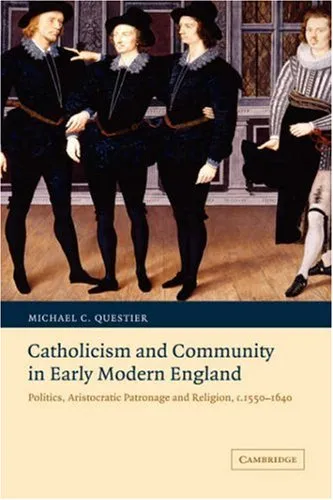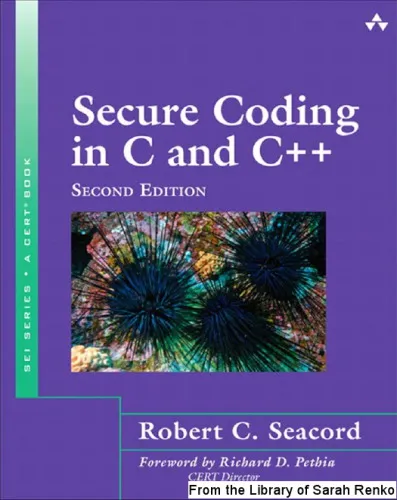Catholicism and Community in Early Modern England: Politics, Aristocratic Patronage and Religion, c. 1550-1640
4.3
Reviews from our users

You Can Ask your questions from this book's AI after Login
Each download or ask from book AI costs 2 points. To earn more free points, please visit the Points Guide Page and complete some valuable actions.Related Refrences:
Welcome to an immersive exploration of English Catholicism during the transformative period of the late 16th and early 17th centuries. 'Catholicism and Community in Early Modern England: Politics, Aristocratic Patronage and Religion, c. 1550-1640' delves into how Catholic communities navigated the challenging socio-political landscape of Early Modern England.
Detailed Summary of the Book
'Catholicism and Community in Early Modern England' provides an in-depth examination of the intricate relationships between politics, religion, and patronage in a time when the English state was undergoing significant transformation. The book situates itself within the broader context of the Reformation and its impact on the Catholic minority in England. It discusses how aristocratic patronage was crucial for the survival and support of Catholic communities during a period marked by persecution and religious instability.
The narrative shines a light on the role of the Catholic gentry and aristocracy, who, through patronage, helped maintain Catholic religious practices and community structures. This period saw Catholics relying on resources and protection provided by influential patrons to sustain their religious identity in a predominantly Protestant society. The book chronicles how these relationships influenced both local and national politics, examining the delicate balance Catholics had to maintain in their show of loyalty to the crown while preserving their religious integrity.
Key Takeaways
1. The resilience of Catholic communities in England during a tumultuous epoch is a testament to their robust social networks and the importance of aristocratic patronage.
2. The complex identity of English Catholics is depicted as being deeply intertwined with politics, where patronage served not only as a means for survival but also as a tool for negotiating power.
3. The dynamic between Catholic gentry and the broader Catholic community reveals a facet of early modern England that contradicts the narrative of an entirely Protestant nation.
Famous Quotes from the Book
"The oft-forgotten Catholic gentry and aristocracy played pivotal roles in sustaining a faith and culture that many believed destined to vanish from the landscape of English life."
"In a milieu charged with political and religious tension, Catholic communities demonstrated an extraordinary capacity for adaptation and resilience, sustained by the protection and patronage that strategically positioned allies could afford."
Why This Book Matters
This book matters because it provides a nuanced understanding of how religion and politics intersected to shape the lives of people in Early Modern England, challenging the homogenized view of religious uniformity post-Reformation. It not only contributes to the historiography of the English Reformation but also underscores the importance of religious diversity and the intersections of power, belief, and society. In doing so, it casts light on broader themes of religious tolerance, persecution, and community resilience, themes that remain relevant in contemporary discourse on religious freedom and identity politics.
Through meticulous research, 'Catholicism and Community in Early Modern England' gives voice to a silent minority and enriches our understanding of the complexity of English history during a period of significant religious and social upheaval.
Free Direct Download
You Can Download this book after Login
Accessing books through legal platforms and public libraries not only supports the rights of authors and publishers but also contributes to the sustainability of reading culture. Before downloading, please take a moment to consider these options.
Find this book on other platforms:
WorldCat helps you find books in libraries worldwide.
See ratings, reviews, and discussions on Goodreads.
Find and buy rare or used books on AbeBooks.
1302
بازدید4.3
امتیاز50
نظر98%
رضایتReviews:
4.3
Based on 0 users review
"کیفیت چاپ عالی بود، خیلی راضیام"
Questions & Answers
Ask questions about this book or help others by answering
No questions yet. Be the first to ask!




